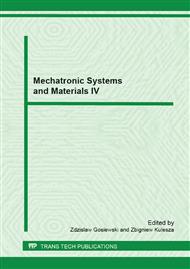p.59
p.67
p.73
p.79
p.84
p.90
p.96
p.102
p.108
Fuel Cells for Autonomous Underwater Vehicles
Abstract:
A long-distance performance is a significant parameter for mobile platforms. A key condition is a highly efficient source of energy. Fuel cells, i.e. electrochemical devices, capable of direct conversion of chemical energy accumulated in fuel into electrical energy, occurred to be relevant. In this paper there were presented the results of the analysis pertaining to the volumetric requirements of the system exploiting the fuel cell that is capable of ensuring the running time comparable with that of conventionally used rechargeable batteries.
Info:
Periodical:
Pages:
84-89
DOI:
Citation:
Online since:
March 2013
Authors:
Price:
Сopyright:
© 2013 Trans Tech Publications Ltd. All Rights Reserved
Share:
Citation:


